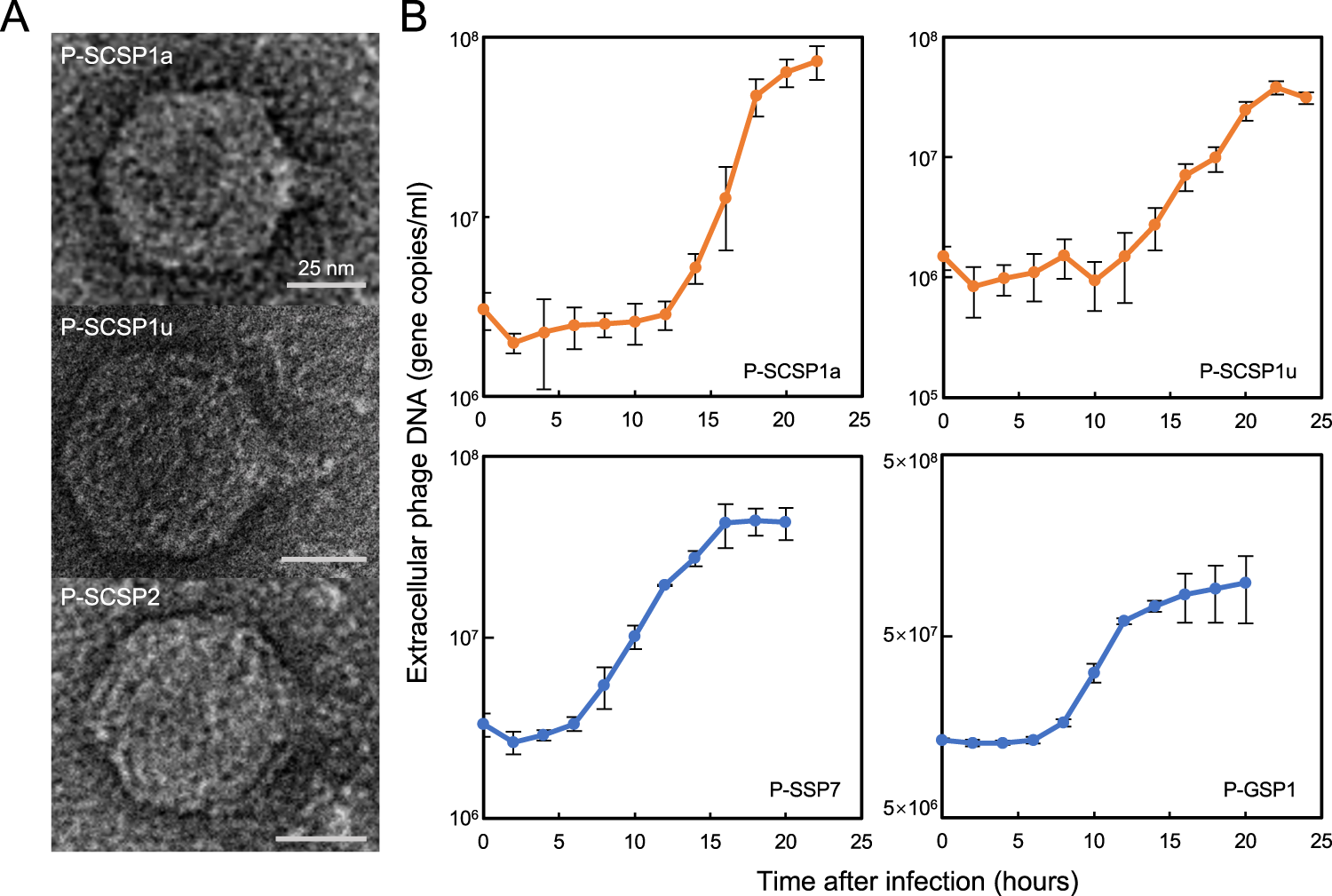Cyanopodoviruses affect the mortality and population dynamics of the unicellular picocyanobacteria Prochlorococcus and Synechococcus, the dominant primary producers in the oceans. Known cyanopodoviruses all contain the DNA polymerase gene (DNA pol) that is important for phage DNA replication and widely used in field quantification and diversity studies. However, we isolated 18 cyanopodoviruses without identifiable DNA pol. They form a new MPP-C clade that was separated from the existing MPP-A, MPP-B, and P-RSP2 clades. The MPP-C phages have the smallest genomes (37.3–37.9 kb) among sequenced cyanophages, and show longer latent periods than the MPP-B phages. Metagenomic reads of both clades are highly abundant in surface waters, but the MPP-C phages show higher relative abundance in surface waters than in deeper waters, while MPP-B phages have higher relative abundance in deeper waters. Our study reveals that cyanophages with distinct genomic contents and infection kinetics can exhibit different depth profiles in the oceans.
Citation
Cai, L., Chen, Y., Xiao, S. et al. Abundant and cosmopolitan lineage of cyanopodoviruses lacking a DNA polymerase gene. ISME J 17, 252–262 (2023). https://doi.org/10.1038/s41396-022-01340-6

